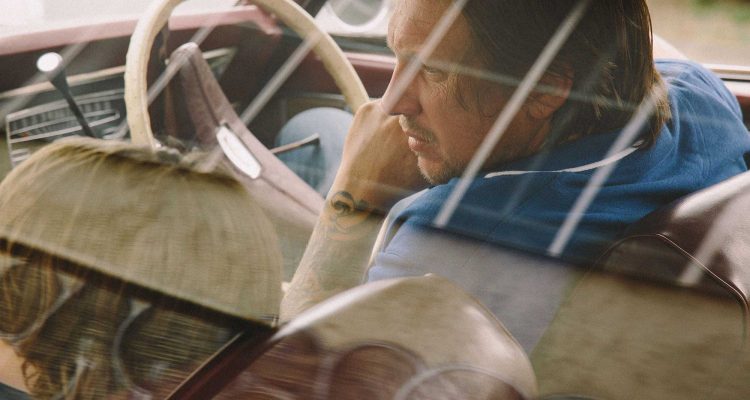In an era of cinematic universes, expanded narratives, and multi-threaded storytelling, there is an attractive elegance in simplicity. For his debut feature, Jason Raftopoulos keeps things refreshingly clean with “West Of Sunshine,” but don’t mistake that for a lack of complexity. Even though the film runs under 80 minutes, the writer/director’s laser focus on his two leads creates a compelling portrait of fatherhood and the intergenerational burden of having to carry the past or the future of a family legacy. And even against the backdrop of a crime story, Raftopoulos never muddies the waters of his character based drama, keeping his eye on the relationship at the heart of his picture.
When we first meet Jim (Damian Hill), he might not be having the worst day of his life, but it’s likely up there. As if having a debt to pay a loan shark by the end of the day isn’t enough to have hanging over his head, he’s forgotten he promised his estranged wife Karen (Faye Smythe) that he’d look after their son Alex (Ty Perham), who is on school holiday, while she’s at work. So, Jim will have to hustle the money for the loan payment with his son hanging by his side. Squeezing Jim’s time even further is having to clock in for his job as a parcel courier. It’s enough to make anyone have a nervous breakdown, but from the way he carries himself, it’s more than evident that Jim has been up against it before.
However, Jim’s confidence never rides too far away from hubris. His weathered face and kind eyes sees him have more than one woman he can call on for a favor, and with a surefire plan to raise the money he owes, there’s little doubting he’ll pull it off. However, both in personal relationships and schemes, Jim never knows a boundary he won’t cross or a risk he won’t take until it’s too late. His undoubting belief in his own success consistently leads to failure, and its a cycle he’s clearly repeated over and over again right up until the middle age of his life.
Likely by necessity of budget, there isn’t an ounce of fat on the screenplay for “West Of Sunshine,” but Raftopoulos uses this to his advantage. Tattooed, working a job that pays likely not much more than minimum wage, and driving a vintage car that once belonged to his father says everything we need to know about Jim. It’s not hard to imagine the past of someone who is in as much trouble as he is, with as few resources at his disposal. Hill finds the turmoil inside of Jim, who fears becoming like his father who left him at a young age, and longs to impress his son, but can never seem to find the right foot to make it work. Perham more than holds his own against Hill, believably portraying a young child who eagerly wants a father figure, but remains confused at the mixture of kindness and cruelty he receives. Alex has yet to discover the harsh realties of the world, making the unpredictable intensity of his father, all the more difficult to bear.
Yet, with the heavy thematic material on the table, what makes “West Of Shine” succeed is the warmth Raftopoulos has for his characters. Part of that is aided by the cinematography of Thom Neal, who lovingly captures the Melbourne sunshine that coats the picture. However, the other part is from Raftopoulos who never lets Jim’s desperation turn into misery. There is a fine distinction between those two emotions, and keeping that balance, coupled with a genuine care for his leads, makes it easy to endear oneself to “West Of Sunshine.” The picture, particularly in the back half, threatens to undo its good work with some story elements that come dangerously to overcooking, but Raftopoulos never puts his characters through something just for the sport of it. There is genuine compassion here which is winning, particularly in a landscape when cynicism tends to be a default indie film sentiment.
Of course, not everything comes out flawless in the picture. The score by Dead Can Dance’s Lisa Gerrard and James Orr brings some prestige to the film, and is quite good, but feels like a poor fit for “West Of Sunshine” which largely operates in a more grounded, realist aesthetic. Meanwhile, the film’s resolution feels just a little too neatly wrapped, even though its convincingly played. Nonetheless, with this film, Raftopoulos has made a solid first impression. A drama crafted with precision, and feeling, “West of Sunshine” succeeds admirably with its modest ambitions, as the filmmaker puts himself on the horizon as one to watch. [B]
Check out all our coverage of the 2017 Venice Film Festival here.

